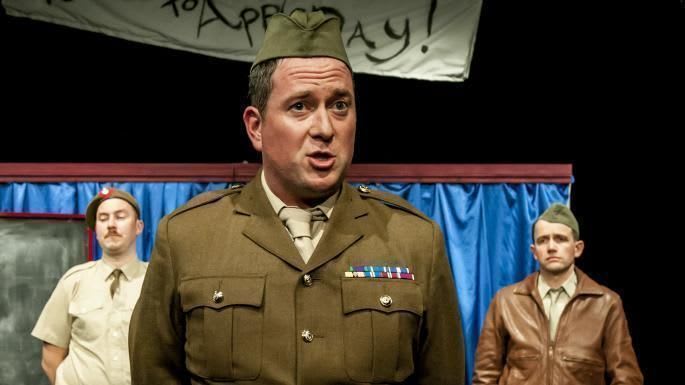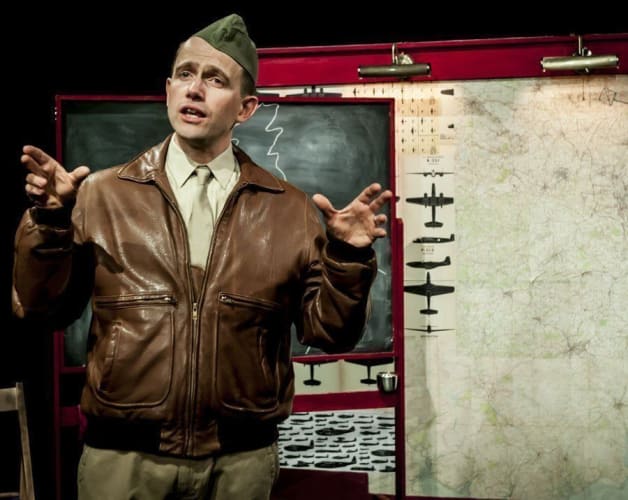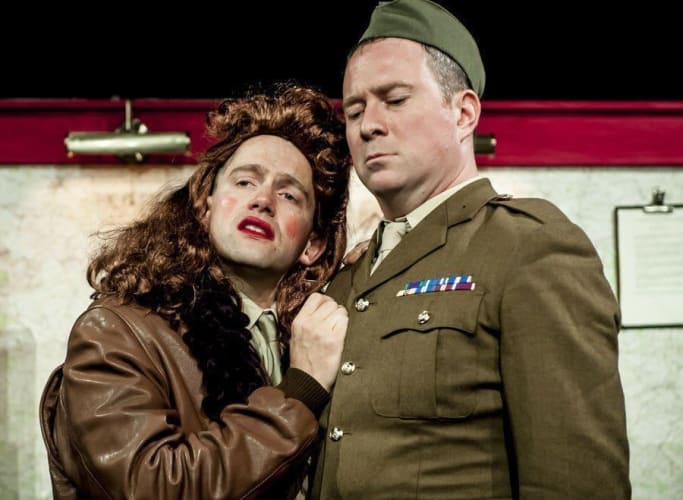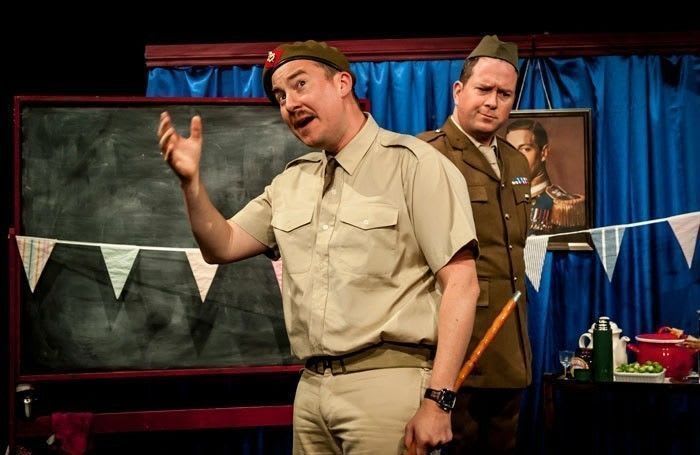In 1942, the American military produced a booklet to explain the oddities of British language, currency and customs to their servicemen who were arriving in increasing numbers after the USA’s entry into the Second World War. This show, created by the comedy trio who make up The Real McGuffins and their director John Walton, is based on that handbook whose title it borrows.
The audience is transported to the village of Nether Middleton where a unit of the US Air Force is newly arrived and apparently went on the rampage the night before, riding wildly over village green and allotments, locking PC Knott in his own police station cell and scaring the vicar’s cat which has scarpered. Now the airmen are gathered for a talking-to and a lesson in understanding the natives.
Their copies of the booklet have already been used in lieu of non-existent loo paper so education officer Eugene Schultz (who’s a performer who had been on Broadway) has the men (i.e. the audience) gathered to be taught appropriate behaviour.
Gene (James Millard), who gets the airmen to respond to his greeting with “hi Gene,” is soon joined by his loud-mouthed, less-well informed superior Colonel Attwood (Dan March). The Colonel kicks off by calling out names of actual guys in the audience who are expected to respond in proper military fashion before he answers questions they are supposed to have handed in previously.
It’s not long before a British Major (Matt Sheahan) turns up demanding an apology to the whole village and lessons to teach the airmen appropriate behaviour for the future. “Americans,’ says the Colonel, “don’t apologise to anyone,” but the threat that that if they don’t make amends they will be posted to the Pacific brings compliance. Gene starts to explain things but the Colonel takes over, funnily wrong-footed with increasing frequency and a detailed explanation of British currency (£.s.d.) in all its denominations by the Major that leaves a blackboard covered in chalked comic muddle.
This early part comes the closest to direct adaptation from the guidance booklet (which the Bodleian Library has reprinted from a copy in their collections). Gene has to explain to his Colonel that polite British expressions should not be taken literally and we get a succession of examples: that “how do you do,” for instance, doesn’t have a reply—you say the same thing back, that people say “sorry,” or “excuse me” without having any reason to apologise.
What follows in a way dramatises the book less directly it by exploring the conflict of difference that a common language shared by two cultures can create through both their own misunderstandings and by acting out supposedly improvised scenarios which see Gene in females roles. He really gets into it, going off at one point to powder his nose and coming back rouged up. Millward also gets fully dragged-up to play the British Major’s upper class mother while Dan March does a double as a Woosterish British aristo.
Winston Churchill is due to arrive very soon to see how well the Allies have integrated and there’s a great deal of fun had trying to find something they can do together: a compromise cross between cricket and baseball perhaps, which gets the audience bowling balls at the actors. These balls are crumpled paper, not hard ones: however intimidating the Colonel sometimes is to his airmen no one gets hurt in this show.
There’s an opening sequence after the interval that uses a live heads and puppets technique to present Axis ideas of the British, as Germans and Italians are briefed in spy school that fits rather awkwardly into the format, but things soon pick up and these lively performers even get the whole audience dancing as Morris men.
Director John Walton keeps things from going too overboard but trusts his cast’s instinct. The McGuffins are a cast that know how to work an audience and give them a good time and there is a final touch that is delightfully personal.



